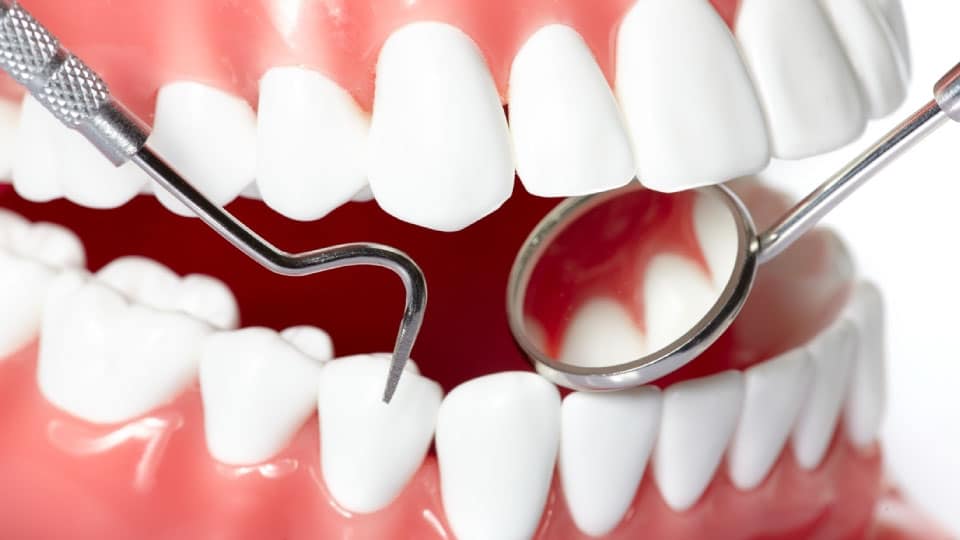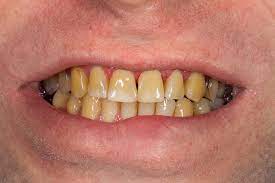The Impact of Smoking on Oral Health: Breaking the Habit
Smoking has been a prevalent habit among individuals for centuries, with its origins dating back to ancient civilizations. However, in modern times, the harmful effects of smoking have been thoroughly researched and documented, leading to a significant decline in its popularity. Despite this, smoking remains a pressing public health concern, with approximately 1.3 billion people worldwide still engaging in this habit. Apart from the well-known effects on overall health, smoking has a detrimental impact on oral health, causing a range of oral diseases and complications. As professional Dentist Plano TX, it is our responsibility to educate and inform the public about the consequences of smoking on oral health and encourage individuals to break this addictive habit. In this article, we will explore the various ways smoking affects oral health and discuss strategies for quitting this harmful habit. By understanding the impact of smoking on oral health, we can work towards creating a healthier society and advocating for a smoke-free world.
Harmful effects of smoking on teeth
Smoking has long been recognized as a significant risk factor for numerous health issues, and its detrimental effects extend beyond just the respiratory system. The impact of smoking on oral health is a concerning aspect that often goes unnoticed. The habit of smoking can wreak havoc on the teeth and gums, leading to a variety of oral health problems. Firstly, smoking stains the teeth, causing unsightly yellowish or brownish discoloration that is difficult to remove. Additionally, smoking weakens the immune system, making it harder for the body to fight off infections, including those affecting the gums.
This can result in gum disease, characterized by redness, swelling, and bleeding of the gums, and ultimately, tooth loss. Moreover, smoking hampers the production of saliva, which plays a crucial role in neutralizing acids and protecting the teeth against decay. As a result, smokers are at a higher risk of developing cavities and experiencing tooth decay. Overall, the detrimental effects of smoking on teeth are undeniable, making it imperative for individuals to break the habit in order to preserve their oral health.
Increased risk of gum disease
Smoking significantly increases the risk of gum disease, a condition that can have serious implications for oral health. The harmful chemicals present in cigarette smoke can irritate and inflame the gums, leading to a condition known as gingivitis. If left untreated, gingivitis can progress to periodontitis, a more severe form of gum disease that can cause irreversible damage to the gums, bone, and supporting structures of the teeth. Smokers are particularly susceptible to gum disease due to the compromised immune response and impaired blood flow to the oral tissues caused by smoking. Additionally, smoking can mask the signs of gum disease, making it difficult to detect and treat in its early stages. Quitting smoking is crucial for reducing the risk of gum disease and improving overall oral health.
Stained teeth and bad breath
Another significant impact of smoking on oral health is the development of stained teeth and persistent bad breath. The chemicals found in tobacco smoke, such as nicotine and tar, can easily penetrate into the enamel of the teeth, causing them to take on a yellowish or brownish discoloration over time. This staining can be particularly stubborn and resistant to regular brushing and professional teeth cleanings. As a result, smokers often find themselves self-conscious about the appearance of their teeth, affecting their confidence and overall quality of life. Additionally, smoking can also contribute to chronic bad breath, or halitosis, due to the lingering odor of tobacco in the mouth and throat. This can be socially embarrassing and unpleasant for both the smoker and those around them. Quitting smoking is not only essential for improving oral health, but it can also help restore the natural whiteness of teeth and eliminate the persistent issue of bad breath, leading to a healthier and more confident smile.
Potential for oral cancer development
The Impact of Smoking on Oral Health: Breaking the Habit
While stained teeth and bad breath are significant consequences of smoking, the potential for oral cancer development poses an even greater risk. Smoking tobacco, whether it is cigarettes, cigars, or pipes, exposes the oral tissues to a myriad of harmful chemicals and toxins. These substances can cause DNA damage and genetic mutations that increase the likelihood of cancerous cell growth in the mouth, throat, and lips. The carcinogens in tobacco smoke can infiltrate the cells lining the oral cavity, leading to the formation of malignant tumors. It is crucial to recognize that the risk of oral cancer is not limited to heavy smokers; even occasional or moderate tobacco use can contribute to the development of this life-threatening disease. Therefore, breaking the habit of smoking is essential for reducing the potential for oral cancer and safeguarding overall oral health.
Importance of quitting smoking now
Quitting smoking is of utmost importance in preserving and improving overall health. The detrimental effects of smoking extend far beyond oral health and encompass various aspects of physical well-being. Chronic smoking increases the risk of developing numerous life-threatening conditions such as lung cancer, heart disease, and respiratory disorders. By quitting smoking now, individuals can significantly reduce these risks and promote a healthier future. Moreover, quitting smoking not only benefits the individual but also those around them, as secondhand smoke poses health hazards to bystanders. Taking the proactive step to quit smoking today can lead to a longer, healthier life and set a positive example for others to follow.
Conclusion
In conclusion, it is evident that smoking has a detrimental effect on oral health. From stained teeth and bad breath to more serious issues like gum disease and oral cancer, the habit of smoking can have long-lasting consequences. However, by taking the necessary steps to break the habit and seeking professional help and support, individuals can improve their oral health and overall well-being. It’s never too late to make a positive change for your oral health, so don’t hesitate to take the first steps towards a healthier, smoke-free lifestyle. Remember, your oral health is a reflection of your overall health, and taking care of it should be a top priority. Feel free to contact us immediately for any dental emergencies. Our Emergency Dentist Plano is committed to restoring your smile and relieving your discomfort, enabling you to resume life with confidence and ease.








